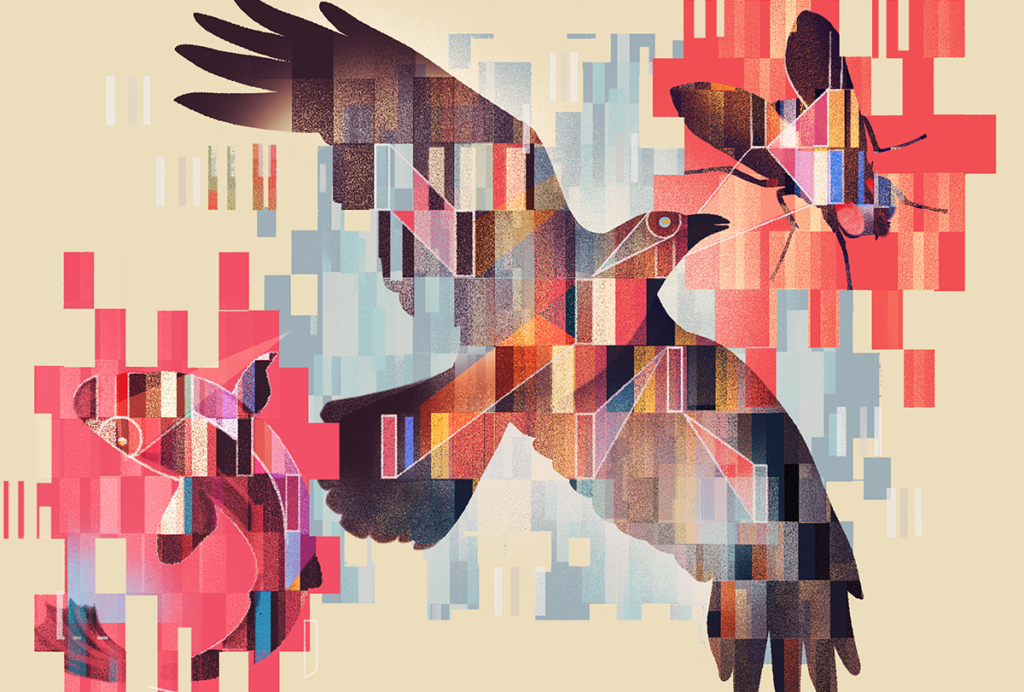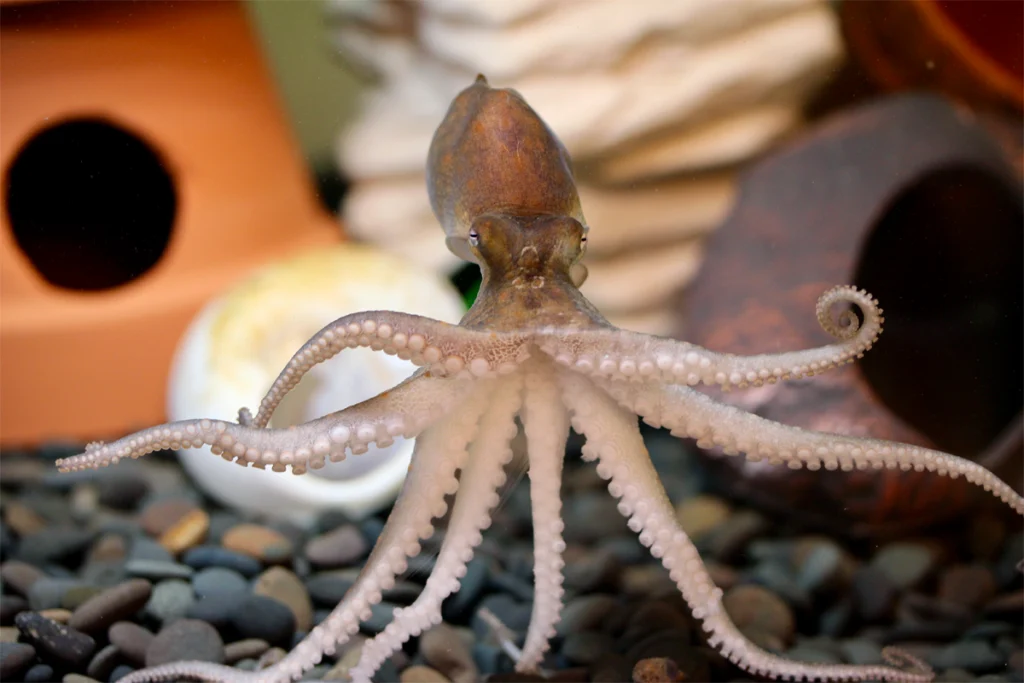Cephalopods
Recent articles
Systems and circuit neuroscience need an evolutionary perspective
To identify fundamental neuroscientific principles that generalize across species, neuroscientists must frame their research through an evolutionary lens.

Systems and circuit neuroscience need an evolutionary perspective
To identify fundamental neuroscientific principles that generalize across species, neuroscientists must frame their research through an evolutionary lens.
Cephalopods, vision’s next frontier
For decades, scientists have been teased by the strange but inaccessible cephalopod visual system. Now, thanks to a technological breakthrough from a lab in Oregon, data are finally coming straight from the octopus brain.

Cephalopods, vision’s next frontier
For decades, scientists have been teased by the strange but inaccessible cephalopod visual system. Now, thanks to a technological breakthrough from a lab in Oregon, data are finally coming straight from the octopus brain.
Protocol-sharing site aims to ease administrative burden of animal research
The library of regulatory-compliant animal procedures offers experimental standards and specific language that researchers can borrow for their own legal paperwork.

Protocol-sharing site aims to ease administrative burden of animal research
The library of regulatory-compliant animal procedures offers experimental standards and specific language that researchers can borrow for their own legal paperwork.
Octopus arm anatomy, molecular makeup revealed in new maps
The datasets provide “a very nice reference” for future functional studies.
Octopus arm anatomy, molecular makeup revealed in new maps
The datasets provide “a very nice reference” for future functional studies.
Knowledge gaps in cephalopod care could stall welfare standards
The U.S. National Institutes of Health wants to regulate research involving cephalopods. But there aren’t enough rigorous studies to base the regulations on, veteran cephalopod researchers say.

Knowledge gaps in cephalopod care could stall welfare standards
The U.S. National Institutes of Health wants to regulate research involving cephalopods. But there aren’t enough rigorous studies to base the regulations on, veteran cephalopod researchers say.
Explore more from The Transmitter
Lack of reviewers threatens robustness of neuroscience literature
Simple math suggests that small groups of scientists can significantly bias peer review.

Lack of reviewers threatens robustness of neuroscience literature
Simple math suggests that small groups of scientists can significantly bias peer review.
Dendrites help neuroscientists see the forest for the trees
Dendritic arbors provide just the right scale to study how individual neurons reciprocally interact with their broader circuitry—and are our best bet to bridge cellular and systems neuroscience.

Dendrites help neuroscientists see the forest for the trees
Dendritic arbors provide just the right scale to study how individual neurons reciprocally interact with their broader circuitry—and are our best bet to bridge cellular and systems neuroscience.
Two primate centers drop ‘primate’ from their name
The Washington and Tulane National Biomedical Research Centers—formerly called National Primate Research Centers—say they made the change to better reflect the breadth of research performed at the centers.

Two primate centers drop ‘primate’ from their name
The Washington and Tulane National Biomedical Research Centers—formerly called National Primate Research Centers—say they made the change to better reflect the breadth of research performed at the centers.